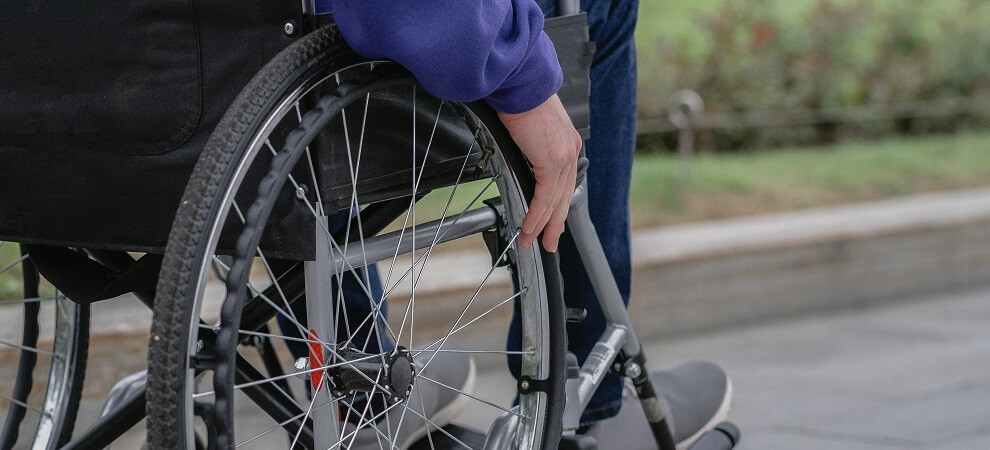There are various social welfare benefits available for people living in Ireland. These are designed to reduce the pressures of daily living by providing some financial support. One such example is Disability Allowance, which pays a weekly allowance to people with a disability. In this article, we will look at this allowance, including eligibility criteria and how much you may be entitled to claim.
What is Disability Allowance?
Disability Allowance (DA) is a weekly allowance paid to eligible claimants. It is available for anyone aged 16 or over who is living with a restrictive disability, even if they are in school. Disability Allowance is means-tested, meaning your income will affect how much you can receive. However, you may be eligible for other social welfare benefits if you receive Disability Allowance.
Am I Eligible for Disability Allowance?
To be eligible for Disability Allowance, you must meet certain criteria. You need to:
- Have been living with an injury, disease, or physical or mental disability for at least one year, or have an injury, disease, or physical or mental disability that is expected to last for at least one year.
- Be unable to perform work that would otherwise be suitable for a person of your age, experience, and qualifications.
- Be aged between 16 and 66 – once you pass 66 years of age, you will need to be assessed for your State Pension instead.
- Satisfy a means test, which looks at your income, and meet habitual residence conditions.
If you are married, in a civil partnership, or cohabiting, you may both be eligible for Disability Allowance. When you both qualify, you will each receive a separate weekly payment.
Medical Assessment
As part of your application for Disability Allowance, you will need to be assessed by a doctor. They will need to complete a report on whether your injury, disease, or physical or mental disability has lasted or is expected to last for at least a year, and whether this limitation prevents you from performing work that would otherwise be suitable for someone of your age, experience, and qualifications.
Disability Allowance in Hospital and Residential Care
Eligibility for Disability Allowance is not affected by being in hospital or residential care. If you are already receiving DA, you will continue to receive it if you go into hospital or care. You can also apply if you are already in care.
Your Means Assessment
A means assessment looks at your income to determine how much Disability Allowance, if any, you are eligible for. If you are receiving more than a specified amount of income, you will not be able to receive DA.
The main aspects of income included in a means test are:
- Cash income – Regular incomings such as wages, including those received by your spouse, civil partner, or cohabitant.
- Capital – The value of any savings, investments, shares, or any property outside of your own home. The first €50,000 are not considered.
- Maintenance
If you have sold your home, the means test does not consider the first €190,500 from the sale.
Income from Work
Whilst your wages are included in your means test, some of this income is not considered.
After paying PRSI, pension contributions, and union dues, you can earn up to €165 a week without any impact on your Disability Allowance. Above this amount, half your earnings between €165 and €375 are assessed in full.
If you receive Disability Allowance whilst out of work, but then start working, you will need to provide proof of earnings so that your payments can be recalculated.
How Much Can I Get?
You can receive up to €232 a week with Disability Allowance. If you are married, in a civil partnership, cohabiting, or have children, you may be eligible for an increase to your DA. You will only be eligible for this extra amount if your spouse or partner has an income below a certain level.
The extra amounts you could receive are:
- €154 for a dependent adult (e.g. spouse)
- €46 for a dependent child under 12 (reduced to €23 in some circumstances)
- €54 for a dependent child over 12 (reduced to €27 in some circumstances)
Your payments will either be deposited directly into your bank account or can be collected from your local Post Office.
How to Apply for Disability Allowance
Application is simple. You can get a form from your local Intreo Centre, Social Welfare Branch Office, or Citizens Information Centre.
Once filled in, send your form to:
Disability Allowance Section
Department of Social Protection
Social Welfare Services Office
Government Buildings
Ballinalee Road
Longford
Ireland
What Else Am I Eligible For?
A full list of social welfare payments can be found on the Citizens Information website. We recommend looking at the benefits available, as there may be multiple claims you can make to help you live independently.
Peace of Mind from LifeConnect24
Receiving social welfare support isn’t the only way to improve your wellbeing at home. A personal alarm from LifeConnect24 makes it easy to call for assistance in an emergency. If you are living with a long-term disability, this could be an invaluable investment.
In an emergency, such as a fall at home, you simply press the button on your alarm pendant to send an alert to our 24/7 Response Team. If you choose a fall detector pendant, an automatic alert can also be sent. Our team then arrange help on your behalf by calling your emergency contacts and informing them that you need support. When necessary, we will also alert the emergency service on your behalf.
To find out more, read our guide to the LifeConnect24 personal alarm service. Order online today, or give our helpful team a call on 1 800 937543 and they will be happy to answer any questions you may have.
Editor’s Note: This article was updated on 6th June 2024.





